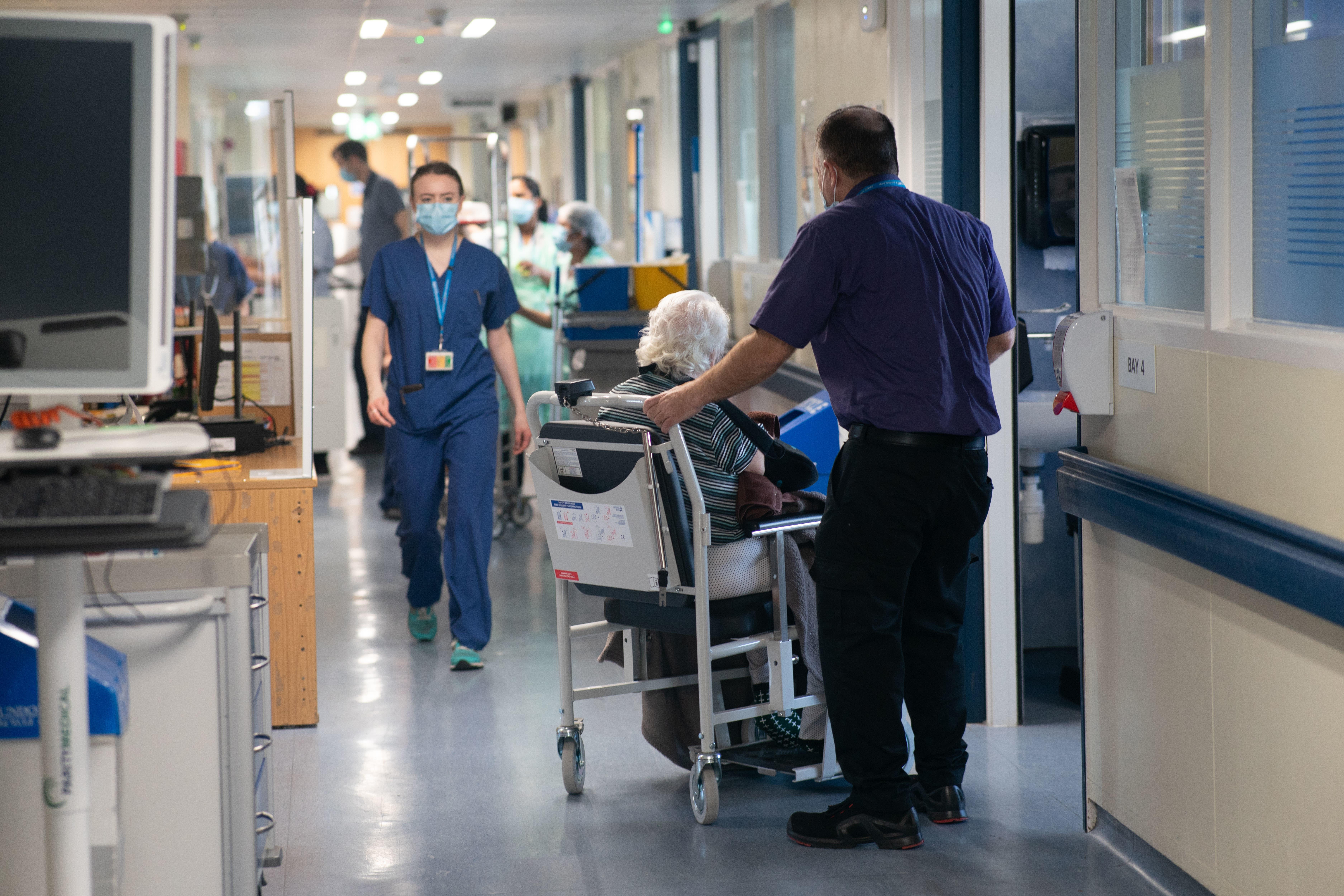Sharp rise in hospital patients in England with norovirus
The total has jumped 45% in a week and is close to this winter’s peak.

Your support helps us to tell the story
From reproductive rights to climate change to Big Tech, The Independent is on the ground when the story is developing. Whether it's investigating the financials of Elon Musk's pro-Trump PAC or producing our latest documentary, 'The A Word', which shines a light on the American women fighting for reproductive rights, we know how important it is to parse out the facts from the messaging.
At such a critical moment in US history, we need reporters on the ground. Your donation allows us to keep sending journalists to speak to both sides of the story.
The Independent is trusted by Americans across the entire political spectrum. And unlike many other quality news outlets, we choose not to lock Americans out of our reporting and analysis with paywalls. We believe quality journalism should be available to everyone, paid for by those who can afford it.
Your support makes all the difference.The number of patients in hospital in England with norovirus has jumped sharply, with health experts warning levels of the seasonal bug remain high.
An average of 678 adult hospital beds were filled last week by people with diarrhoea and vomiting or norovirus-like symptoms, NHS data shows.
This is up 45% from 468 beds the previous week and is just below the peak of 688 beds reached at the end of January, which was the highest figure this winter.
Norovirus is the most common infectious cause of vomiting and diarrhoea.
It spreads easily through contact with someone who has the virus or with contaminated surfaces.
While most people make a full recovery within two or three days, the virus can lead to dehydration, especially among the very young, the elderly or those with weakened immune systems.
Amy Douglas, norovirus epidemiologist at the UK Health Security Agency (UKHSA), said: “Reports of norovirus have fluctuated over the last month but still remain high.
“If you have got diarrhoea and vomiting, you can take steps to avoid passing the infection on. Do not return to work, school or nursery until 48 hours after your symptoms have stopped and don’t prepare food for others in that time either.
“If you are unwell, avoid visiting people in hospitals and care homes to prevent passing on the infection in these settings.
“Washing your hands with soap and warm water and using bleach-based products to clean surfaces will also help stop infections from spreading. Alcohol gels do not kill norovirus, so don’t rely on these alone.”
By contrast, the number of flu patients in England has fallen for the fifth week in a row.
An average of 1,258 people with flu were in hospital each day last week, including 65 in critical care beds.
The total is down 6% from 1,333 the previous week and is the lowest level since the end of December.
Covid-19 patient numbers are also continuing to fall, with an average of 1,690 people in hospital last week who had tested positive for the virus, down 9% week-on-week and down 60% since early January.
Dr Jamie Lopez Bernal, UKHSA consultant epidemiologist for immunisation, said: “Flu shows a continued decline in this week’s data, while Covid-19 remains stable.
“Although activity remains low, people are still getting seriously ill from these viruses.
“If you are showing symptoms of flu or Covid-19 such as a high temperature, cough, and feeling tired and achy, try to limit your contact with others, especially those who are vulnerable. Consider wearing a mask if you do need to go out.”